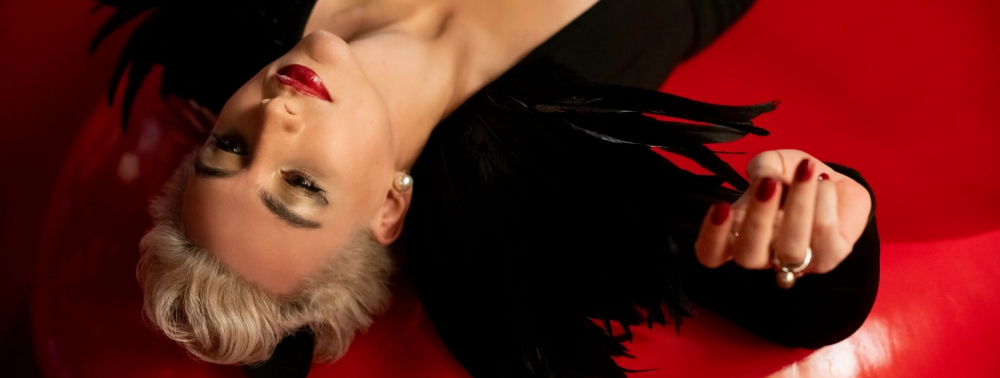Jason Watkins is arguably the leading “That Guy” working in Britain today. His everyman character actor appeal – round-faced, balding and diminutive – has led to a startlingly varied array of work. He played Harold Wilson in The Crown. He played Mr Humphries in the BBC’s 2016 Are You Being Served? remake. He’s been in W1A and Line of Duty. He’s been in The Hollow Crown and the Nativity films.
Earlier this year, he starred in ITV’s surprise hit detective drama McDonald and Dodds, recently renewed for a second series. He is a reassuringly familiar presence. You have almost definitely seen him – and liked him – in something, and yet many people would struggle to recall his name.
Or would they? He amiably bristles. “Well, I think things have probably changed a bit, since the Bafta,” says Watkins, reminding me of the fact that he fought off competition from some little-known actors named Benedict Cumberbatch, Toby Jones and James Nesbitt to win the best actor Bafta for his role in The Lost Honour of Christopher Jefferies in 2015. “But, yes, I mean I would agree with that. I’ve always been good at accents and different types of theatre, and I don’t have a snobbery about popular stuff. As you’re earning a living, you do tend to cover as many bases as possible.”

His next role is one of his trickiest. As Brian Masters in ITV’s Des, he’ll play the real-life biographer of serial killer Dennis Nilsen. It’s a vital component in a weirdly tidy case. Nilsen’s near-instantaneous matter-of-fact confession – he admitted to committing “15 or 16” murders before he’d even arrived at the police station – means that there is no Columbo-style cat and mouse aspect to his story, no satisfyingly climactic denouement. In terms of traditional dramatic tension, the tale is over as soon as it begins.
“It’s just the growing horror, isn’t it?” says Watkins of Nilsen’s arrest. “He just reels out all these victims, unburdening in this narcissistic way. It wasn’t a heartfelt, desperate confession. It was just, ‘Look at me’.”
But the inclusion of Masters – the old-school Garrick Club establishment figure author, who corresponded with Nilsen after his arrest and went on to write the closest thing we have to a definitive explanation of Nilsen’s murders – is where all the intrigue lies. We might know that Nilsen did it, and we might know how he did it. The matter of why he did it, however, is an entirely different story.
In the series, Masters is at great pains to point out that his interest in Nilsen doesn’t stem from a need to understand his motives, but to comprehend. “Society thinks that if you understand, you therefore forgive,” says Watkins. “But the word ‘comprehension’ does open up a world of how can we do these things? Why do you do them? [Masters’ book] Killing for Company is exhaustive in terms of going backwards in Nilsen’s life to try to comprehend how he could do what he did.” Watkins knows the book inside out. Not only did it form the basis of his research for the role, but he also recorded a new audiobook version, in character as Masters.
This wasn’t necessarily how he had planned to spend lockdown. As Covid closed in, Watkins was in South Africa, filming a big-money pan-European adaptation of Around the World in 80 Days, reuniting him with his Des co-star David Tennant. Now, as things start to return towards some kind of “new normal” for some of the arts, he is keen to get back to work, and specifically back to the theatre. “I’ve been talking to some producers about projects, but everything is a little bit on hold,” he says.
How are things in the theatre community? “We’re really struggling,” he replies. “I’m fortunate, money in the bank from television work and all that stuff. Freelancers haven’t had anything, haven’t even been able to defer tax. They’ve applied for a modest loan, but this 80% furlough thing just hasn’t happened, and people are very concerned and worried about their current situation.

“I know other governments have placed more emphasis on culture in their spending and in their prioritising of expenses,” he continues. “And yet we sort of grouped ours together with arts and heritage, which is rather strange. I think that’s to do with the National Trust, isn’t it? Stately homes, knights and castles and things. Which is fine, but the arts are such a vital part of our cultural lives and our lives generally. It gives such insight and comfort and entertainment, and feeds all of us.”
In an effort to lighten the mood from illness and serial killers and economic ruin, I mention to Watkins that he seems to be doing a lot of handstands on the internet of late. “I used to be able to sprint,” he replies unexpectedly. “I used to be able to run on my hands. I got quite close to the world record when I was 14. Running the length of a basketball court. Got within a couple of seconds”.
In the nicest possible way – maybe because he’s previously fattened himself up for roles – Jason Watkins does not seem like the sort of person who would come close to the handstand sprint world record. “I’m sort of sport mad,” he counters. “I’ve got massively into cycling. I can do about 1,100 watts, sprinting, which is quite a lot. I’ve just done 35km, whizzing around Regents Park at 6am.”
In terms of the scope and breadth of his television work, Watkins is reminiscent of a pre-Oscar Olivia Colman. Like her, his name in the credits guarantees a certain level of quality. What’s the trick to deciding what will be a good project, I wonder.
“Something like A Very English Scandal, for example,” he replies, audibly burbling with excitement for a series now two years in the rearview. “That was quite a small part, but the script was really fantastic. It was a brilliant story, and I wanted to work with Stephen Frears –that was a no brainer. And obviously Hugh [Grant] being involved and Ben Whishaw, you know, all right, this is going to be good.

“And with Brian Masters – what a fascinating character. It’s always an exciting prospect when you’re reading a script and you’re almost starting to speak, you’re almost reading out loud very early on in a script, because you think: ‘Well, I want to do this.’”
I mention that I saw him retweet a message from someone who had declared him perfect to play the part of Chris Whitty in the inevitable coronavirus dramatisation. Was that an active pitch on his part?
“Well I think I’d have to grow a bit, because he’s very tall, isn’t he?” he says. “But the interesting thing about playing Whitty, apart from it being a sort of zeitgeist prospect, is what is he thinking about? What has been going on inside his head over the past few months?
“Clearly, he’s someone who’s very capable and has integrity and compassion. Everybody wants to lessen the tragedy of it all, and he was at the coalface of that. But obviously at the same time there were pressures whizzing around. What a great character to play, weighing up all sorts of things at once.”
He pauses again. “Or, you know, Farage. I wouldn’t mind having a go at Farage.”
It might be time to clear space for a second Bafta.
Des airs on ITV later this month




